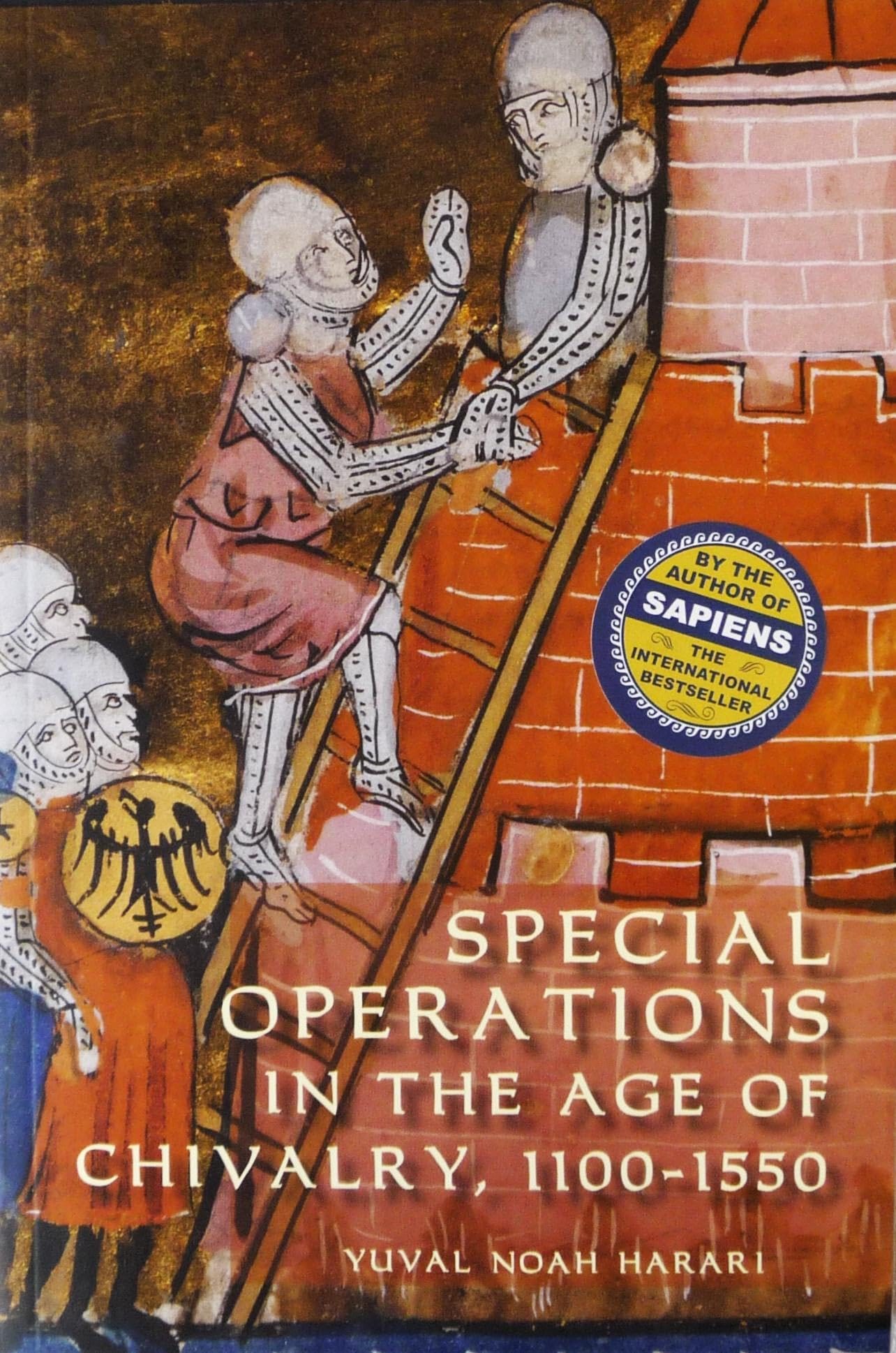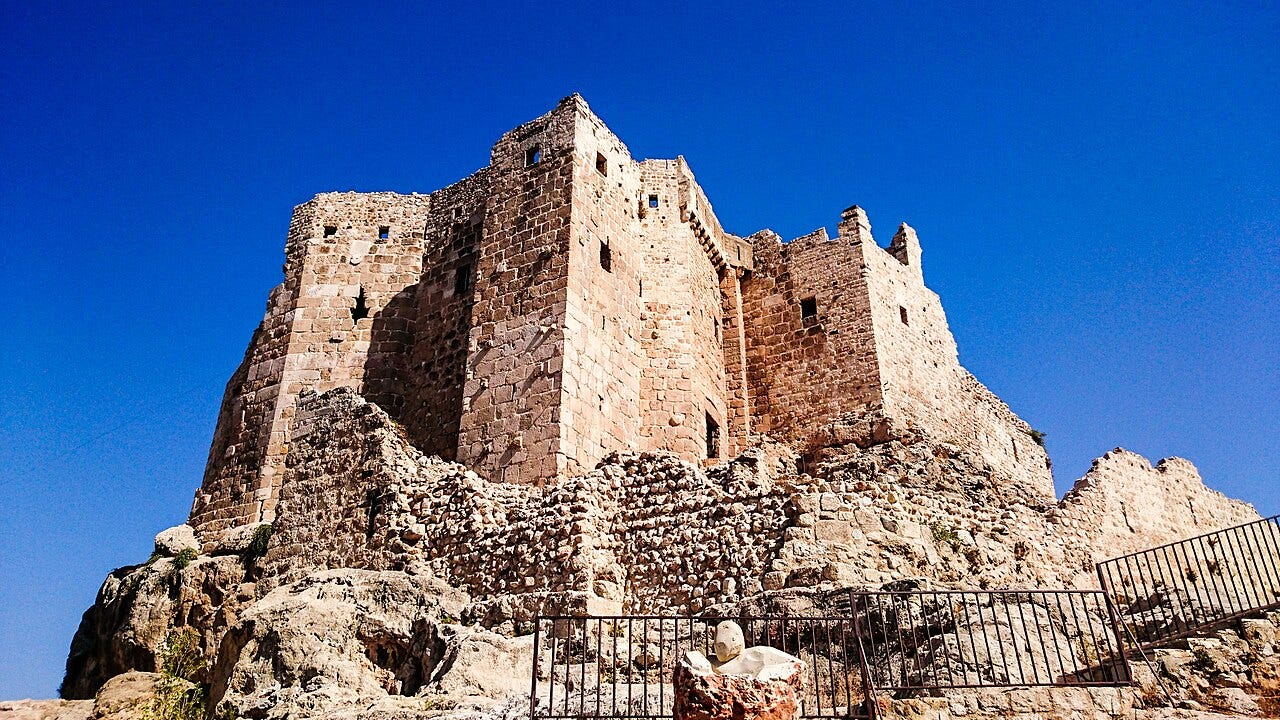The Assassination of Conrad of Tyre
Murder, Mystery, Medieval Politics, and the word 'assassin'
I know now who has the greatest worth
of all those who get up at morning:
Sir Conrad has the finest, no doubt,
for he defends himself there in Tyre from Saladin
and his wretched hireling crew.
May God help him, for help comes tardily!
He alone will gain merit, who alone endures the hardship.
…
Lord Conrad, I know two kings who hang back
from helping you. Now hear who they are:
King Philip's one, who goes about distrusting
King Richard, who distrusts him in return.
I would they were both in Lord Saladin's snares,
For they go boasting about God,
since they took the cross, but say naught of going!
—Ara sai eu de pretz quals l'a plus gran, Bertran de Born, ca 11891
(Sadly no music for this has survived; I’ve substituted Berenguer de Palou's De la iensor).
We interrupt our series on the troubadours to bring you a short note about the assassination of Conrad of Tyre, aka Conrad of Montferrat. 2
I’ve been reading Special Operations in the Age of Chivalry, 1100-1550, by Dr. Yuval Noah Harari. That’s right, the author of the super-famous Sapiens was actually a medievalist before becoming a best-selling author of broad-based works on human history. His chapter on Conrad’s assassination is highly informative, even though I’ve read a great deal about the incident before now.
A quick recap: It’s April of 1192. Conrad of Tyre has just been named the King of Jerusalem, winning out over Richard the Lionheart’s favorite, Guy de Lusignan. Richard has yielded to the inevitable - most of the Outremer Kingdom views Guy as the hapless former king responsible for the disastrous Battle of Hattin, where the Crusader forces were killed almost to the last man by Saladin. The appellation King of Jerusalem contains, as financial reports might say, “forward-looking statements”, as Saladin controls Jerusalem. Whoever is King of Jerusalem will be king in name only, unless the Crusaders can retake Jerusalem. Spoiler alert: they will not, until the Sixth Crusade in 1229, and then they will only hold it for a decade or so. But Richard needs to return to England and leave the Outremer Kingdom in stable hands, and that means Conrad. Cyprus is sold to Guy (given really), and he and the Lusignans will hold Cyprus for 400 years. Richard sends his nephew Henri de Champagne to Tyre to give Conrad the good news. Fate has other plans.
The Assassination of Conrad of Tyre
On April 28, 1192, a few days later, Conrad was assassinated in the bustling streets of Tyre, in broad daylight, as he was returning home from a meal. Two men approached him, seemingly monks or pilgrims seeking an audience. Instead, they drew daggers and stabbed him to death before being cut down themselves by Conrad’s bodyguards. The event stunned Christendom and set off a wave of finger-pointing, conspiracy theories, and political intrigue. Our main sources for this event include the chronicles of Ambroise, Roger of Hoveden, and the writings of Ibn al-Athir, among others, each offering their spin on this medieval mystery.
The Killers: Assassins in Plain Sight
You might wonder where we got the English word ‘assassin’. Turns out, we have arrived at that point in history. The two murderers were members of the notorious Nizari Isma'ili sect, better known to history as the Assassins. The term “assassin” likely derives from the Arabic word hashishin (“users of hashish”), though whether they actually used hashish as part of their rituals is up for debate. European accounts from the Crusades often exaggerated their mystique, painting them as drug-addled fanatics who carried out murders in a trance-like state.
The Assassins emerged in the late 11th century as a splinter group within Shia Islam. Under the leadership of their first grand master, Hasan-i Sabbah, they established a network of fortified strongholds across Persia and Syria, and began a series of intra-Islam assassinations of various caliphs and other leaders.
This shadowy group, led during Richard’s time by Rashid ad-Din Sinan—known as the “Old Man of the Mountain”—was infamous for using targeted killings to further their political and religious goals. Operating from impregnable mountain fortresses, their agents (called fedayeen) would infiltrate courts or communities, often posing as harmless monks or servants before striking. Their motives were often mysterious, though usually it was murder-for-hire. Their leaders fueled their mystique by cultivating an aura of invincibility. According to Marco Polo (who may have embellished a bit), their leaders would give the Nizari followers a taste of paradise—complete with lush gardens and enchanting maidens—before sending them on missions, promising eternal bliss if they succeeded or died in the attempt.
The Assassins’ reputation became legendary, inspiring both fear and fascination among their enemies. One popular tale recounts how the Old Man sent a chilling demonstration of his reach to the crusader leader Henri of Champagne: his agents placed a dagger on Henry’s pillow as he slept, a wordless warning to tread carefully. Such stories cemented the Assassins as the ultimate masters of covert ops in the medieval world. Another story, likely apocryphal, has a Nizari assassin leaping to his death off a castle battlement at the Old Man’s command, simply to impress the visiting Henri de Champagne.
Who Wanted Conrad dead?
Various theories raged at the time over who was responsible for the killing. Did Saladin order up an assassination to prevent Conrad from becoming King of Jerusalem? Did Richard purchase the death in order to return his protege Guy to the nominal throne? Did the Old Man have his own reasons for wanting Conrad dead? These debates have continued until today and into modern scholarship.
Saladin as the candidate is problematic. He had a very contentious relationship with the Old Man, and had little to fear directly from Conrad, and he actually benefitted from Conrad being alive. At the same time he negotiated with Richard, he negotiated separately with Conrad, and the division in the Crusader ranks worked to his advantage. The Assassins had twice attempted to assassinate Saladin in the 1170s, so they were not friendly!
Richard’s Role: Hero or Villain?
Richard, who had been at odds with Conrad, had just spent energy and money getting Conrad named King of Jerusalem, so his motivation is a bit unclear; it also feels “not Richard’s style,” — he was a man of action more than subterfuge.
Adding to the intrigue, shortly after the murder, a letter supposedly from the Assassin leader surfaced, claiming Richard had ordered the hit. Most historians today dismiss the letter as a forgery, likely planted by Richard’s enemies to smear his reputation. Richard himself vehemently denied accusations he was behind the assassination.
Many people of the era suspected Richard, and this became one of the charges against him during his “trial” at the hands of the Holy Roman Emperor in 1193, after his shipwreck returning home, and subsequent capture at Vienna.
Modern thought tends toward the case that the Old Man had his own issues with Conrad, and was likely the originator of the instructions to kill Conrad. While perhaps apocryphal, there are a number of stories of Conrad capturing ships or goods bound for the Nizari, and perhaps the assassination was a result of this conflict.
Ultimately, the assassination of Conrad of Tyre epitomizes the deadly mix of politics, religion, and intrigue that defined the Crusades. Whether orchestrated by Muslim rulers, rival crusader leaders, or the enigmatic Assassins themselves, the murder remains an enduring mystery, a footnote in the larger drama of medieval history that continues to intrigue scholars and storytellers alike.
https://oltramar.livejournal.com/58785.html
https://en.wikipedia.org/wiki/Conrad_of_Montferrat




